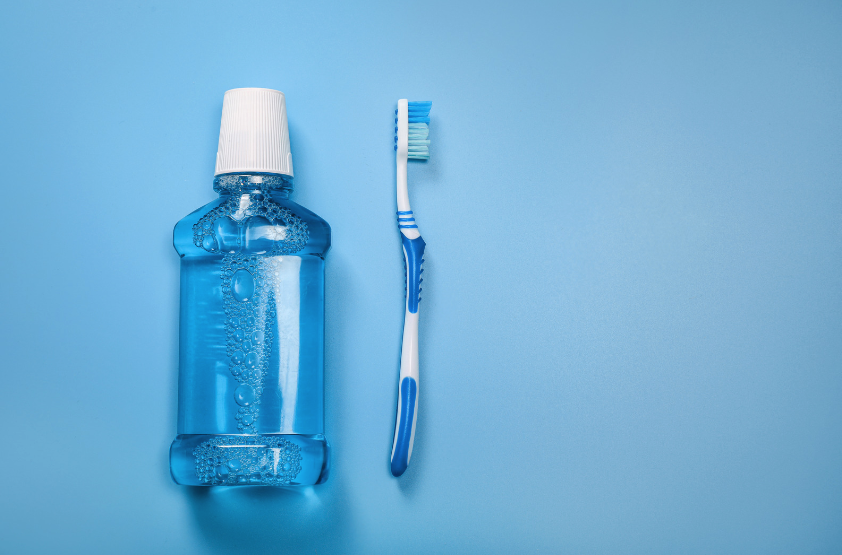
Toothpaste ads talk about fluoride all the time, but what exactly is it and why is it in toothpaste? How does it benefit our teeth? It’s time to refresh our knowledge of this important mineral that helps strengthen teeth and prevent cavities.
Fluoride is a naturally occurring mineral that offers many great benefits when used as directed. Think of it as a superhero, Ms. Fluoride, who protects your teeth from decay! The way Ms. Fluoride strengthens your tooth enamel helps prevent cavities from forming.
Enamel Strengthening
Every day, foods and beverages add and subtract minerals from your tooth’s enamel layer. The enamel is the first layer of each tooth. When that layer gets damaged over time, cavities can form. Damage is caused by acids that form due to different foods, typically those that are high in sugar or that convert to sugar in your mouth, as well as plaque. Acid and plaque (that sticky substance made up of bacteria on your teeth) subtract minerals.
The good news is that Ms. Fluoride remineralizes your teeth! In other words, it adds minerals back into the enamel. This creates a stronger bond between your enamel and the rest of the tooth. The strong bond helps prevent plaque from attacking your teeth and forming cavities. That is why this mineral is commonly included in toothpaste ingredients. It is also added to drinking water supplies in many cities. The small amounts of fluoride in toothpaste and drinking water can help strengthen teeth on a daily basis.
Cavity Prevention
When fluoride adds strength to your tooth enamel, it helps to prevent cavities because the enamel is fortified against the acids that can damage teeth. Brushing your teeth with fluoride toothpaste is just one way to use this mineral to prevent cavities. Some mouthwashes contain this mineral, too.
While you’re thinking about fluoride and your teeth, see what you can do to improve your dental hygiene routine.
In addition to your home use of fluoride toothpaste, dentist’s offices can apply a gel or foam treatment containing the mineral to help strengthen your teeth. Who should consider these treatments? If you or your child has a history of frequent cavities, a topical treatment could be beneficial. People with conditions such as crowns, bridges, or gum disease could also benefit because their teeth are at greater risk of decay due to more of their teeth surfaces being exposed. Finally, those with dry mouth conditions lack the saliva necessary to neutralize acids that can attack the enamel, so fluoride treatments could help remineralize their teeth, as well. Please tell us about any conditions you have that may affect your mouth health, and we’ll help determine if you’re a candidate for these treatments in our offices.
The treatment we provide at Uptown Dental consists of a varnish that we paint on the teeth. This can feel a little sticky, but it has been proven to last longer than other fluoride treatment methods.
While fluoride works well when it is applied to the exterior of the teeth, other minerals and vitamins help add strength to bones and teeth when added to your diet. Calcium, vitamin D, potassium, phosphorus, and vitamin K are excellent for your bones and teeth. Adding foods rich in these nutrients can help your body remineralize your teeth from the inside out. Many of these nutrients are found in vegetables that are good for your body in other ways, so check out the nutritional value and benefits of kale and other cruciferous vegetables, for starters.
A Great Achievement
Remember to drink tap water for the natural or added fluoride that can help your teeth. It has been used as an additive for drinking water in cities around the world for decades, and it has reduced the occurrence of cavities in children. It also occurs naturally in water, so well water may also have fluoride in it. The Centers for Disease Control have not only stated that fluoride is safe, but they declared its addition to water supplies as one of the greatest public health achievements of the 20th century.
While high doses of it can be dangerous, there are few side effects to fluoride that are properly used in small amounts. As soon as a child has teeth, a very small amount of fluoride toothpaste can be used to brush their teeth. We do not recommend food-flavored toothpaste for children, because they may be tempted to swallow it instead of spitting it out.
You will also want to keep in mind that acid and plaque are the enemies of your enamel. Consider a tartar-control toothpaste to further protect your teeth, and remember to floss often.
In summary, fluoride offers one of the best ways to prevent tooth decay. Whether it is toothpaste or mouthwash or treatment, Ms. Fluoride guards against the acids and plaque that can damage your teeth!
Learn More About Fluoride
If you have questions about fluoride, please let us know. We can help you determine whether fluoride treatment is right for you or your children. Schedule your appointment today for a complete exam and cleaning in our friendly dental office in Marion, Iowa. New patients are always welcome, and our caring staff is ready to take care of your family’s dental needs.
